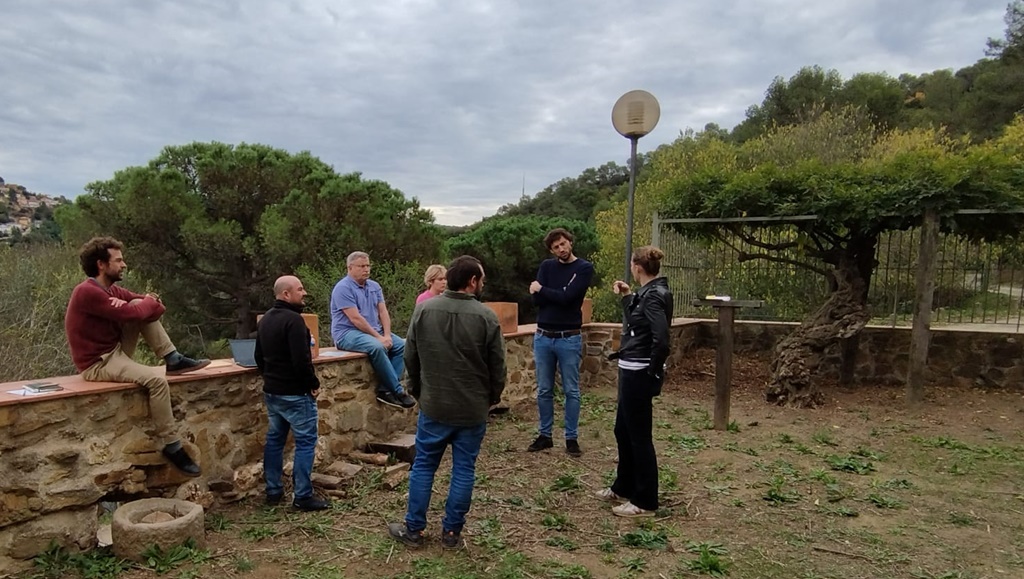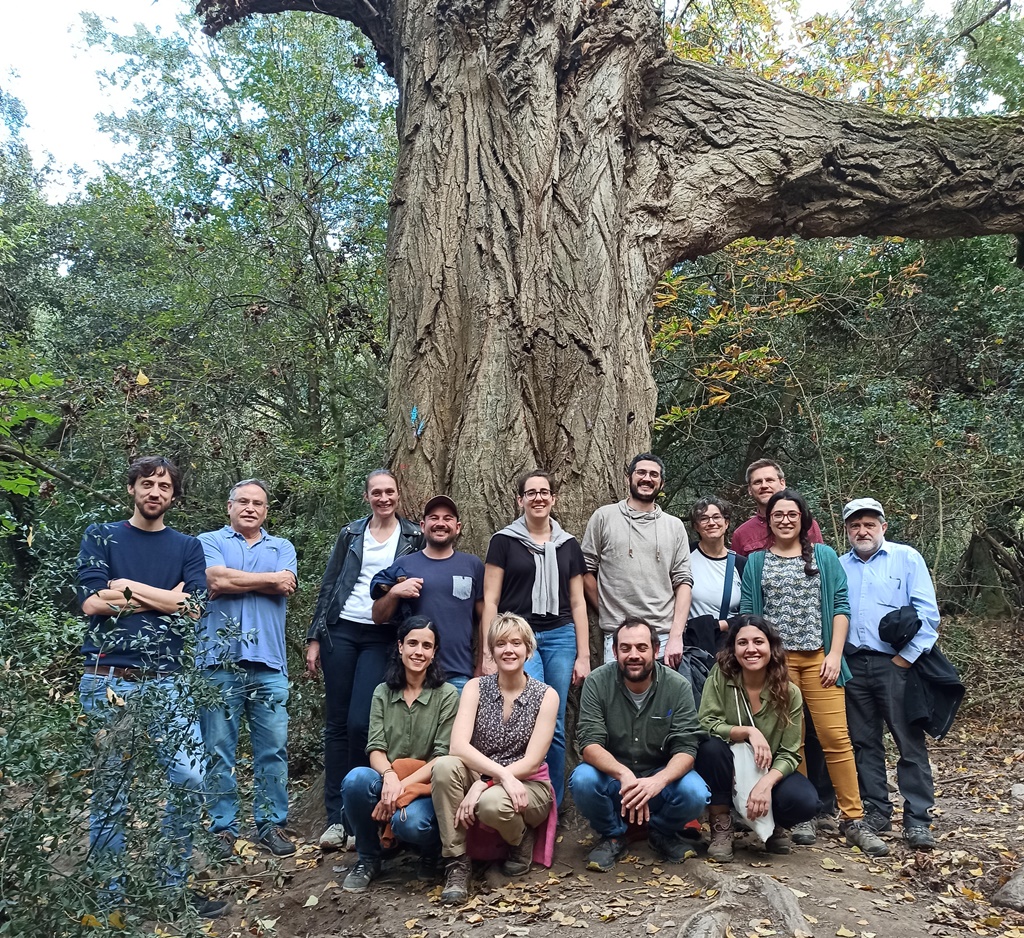CREAF's 2nd Synthesis Action deciphers the forests benefits to people
The question of why it is essential to assess the ecosystem services provided by forests and how to compare them between different forest types was at the heart of the agenda of the second CREAF Synthesis Action, 'Assessing and comparing ecosystem services among forests is key, but why and how? This working session, which promotes international scientific cooperation, combined presentations and discussion sessions, took place at the Can Balasc biological station (Parc Natural de Collserola, Barcelona) in November 2022.
"The forest is one of the main terrestrial ecosystems in terms of surface area and its contribution to well-being is key, for example, in terms of biodiversity, carbon sequestration and multiple cultural aspects"
The workshop analysed forests as multifunctional ecosystems providing services and benefits to society, their main challenges and how to respond to them. These ecosystem services vary depending on the different structure of the forest, its composition and functioning. "The forest is one of the main terrestrial ecosystems in terms of surface area and its contribution to well-being is key, for example, in terms of biodiversity, carbon sequestration and multiple cultural aspects", according to José Valentín Roces, one of the promoters of this second action and a researcher at the University of Oviedo. "Quantifying these benefits in an adequate and integrated way is essential for defining policies and management measures, especially in the current context of global change.

The scientific team behind this Synthesis Action is formed by Victor Flo (Imperial College, UAB), Luciana Jaime (CREAF), Judit Lecina-Diaz (Technical University of Munich), María Ángeles Perez-Navarro (Kings College London), José Valentín Roces-Díaz (University of Oviedo) and Albert Vilà (CREAF, Stirling University). The invited researchers were Maria Felipe-Lucia (from the UFZ research centre, Germany), Jean Paul Metzger (from the Universidade de São Paulo), Klara Winkler (from the Quebec Center for Biodiversity Science), Alessandra la Notte (from the Università de Torino, Italy), Ilse Geijzendorffer (director of the Louis Bolk Instituut, The Netherlands), Rebecca Spake (researcher at the University of Reading, UK), Felix Eigenbrod (researcher at the University of Southampton, UK) and Tord Snäll (researcher at the Swedish University of Agricultural Sciences, Sweden). CREAF specialists in this field were also invited, including Francesco d'Adamo, Josep M. Espelta, Francisco Lloret, Jordi Martinez Vilalta, Maurizio Mencuccini (Synthesis Actions’ coordinator) and Javier Retana.

In structuring the content of the workshop, consideration has been given to why it is relevant to assess the services and benefits provided by forests to people; why spatial and temporal effects are relevant; and how they affect the socio-ecological context, the essential variables and their interrelationship. The next steps of this second Synthesis Action is to explore ways to improve the assessment of forest ecosystem services, in order to inform policy and public management based on the knowledge generated.
The second Synthesis Action workshop is funded through a Synthesis Action included in CREAF's Severo Ochoa Programme.







